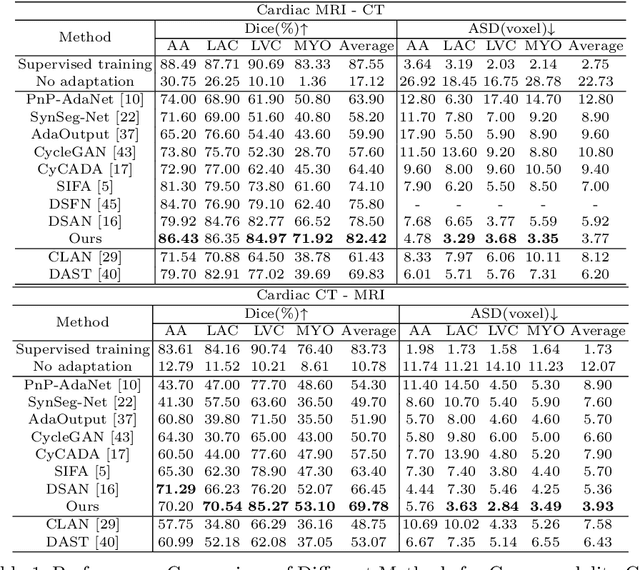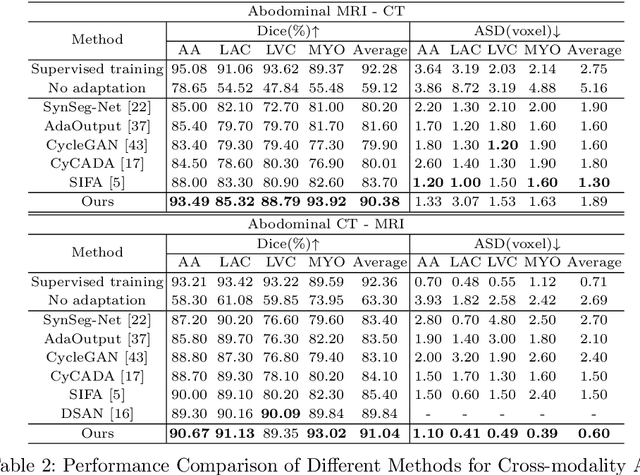Mind The Gap: Alleviating Local Imbalance for Unsupervised Cross-Modality Medical Image Segmentation
Paper and Code
May 24, 2022



Unsupervised cross-modality medical image adaptation aims to alleviate the severe domain gap between different imaging modalities without using the target domain label. A key in this campaign relies upon aligning the distributions of source and target domain. One common attempt is to enforce the global alignment between two domains, which, however, ignores the fatal local-imbalance domain gap problem, i.e., some local features with larger domain gap are harder to transfer. Recently, some methods conduct alignment focusing on local regions to improve the efficiency of model learning. While this operation may cause a deficiency of critical information from contexts. To tackle this limitation, we propose a novel strategy to alleviate the domain gap imbalance considering the characteristics of medical images, namely Global-Local Union Alignment. Specifically, a feature-disentanglement style-transfer module first synthesizes the target-like source-content images to reduce the global domain gap. Then, a local feature mask is integrated to reduce the 'inter-gap' for local features by prioritizing those discriminative features with larger domain gap. This combination of global and local alignment can precisely localize the crucial regions in segmentation target while preserving the overall semantic consistency. We conduct a series of experiments with two cross-modality adaptation tasks, i,e. cardiac substructure and abdominal multi-organ segmentation. Experimental results indicate that our method exceeds the SOTA methods by 3.92% Dice score in MRI-CT cardiac segmentation and 3.33% in the reverse direction.
 Add to Chrome
Add to Chrome Add to Firefox
Add to Firefox Add to Edge
Add to Edge